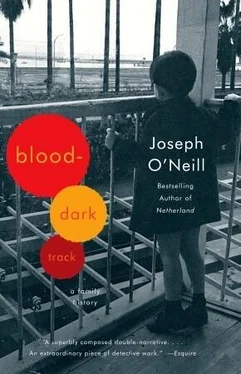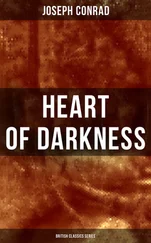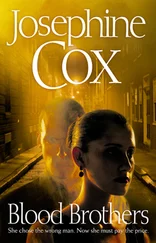Joseph O'Neill - Blood-Dark Track
Здесь есть возможность читать онлайн «Joseph O'Neill - Blood-Dark Track» — ознакомительный отрывок электронной книги совершенно бесплатно, а после прочтения отрывка купить полную версию. В некоторых случаях можно слушать аудио, скачать через торрент в формате fb2 и присутствует краткое содержание. Год выпуска: 2010, ISBN: 2010, Издательство: Knopf Doubleday Publishing Group, Жанр: Современная проза, на английском языке. Описание произведения, (предисловие) а так же отзывы посетителей доступны на портале библиотеки ЛибКат.
- Название:Blood-Dark Track
- Автор:
- Издательство:Knopf Doubleday Publishing Group
- Жанр:
- Год:2010
- ISBN:978-0-307-74265-0
- Рейтинг книги:4 / 5. Голосов: 1
-
Избранное:Добавить в избранное
- Отзывы:
-
Ваша оценка:
- 80
- 1
- 2
- 3
- 4
- 5
Blood-Dark Track: краткое содержание, описание и аннотация
Предлагаем к чтению аннотацию, описание, краткое содержание или предисловие (зависит от того, что написал сам автор книги «Blood-Dark Track»). Если вы не нашли необходимую информацию о книге — напишите в комментариях, мы постараемся отыскать её.
, a fascinating, personal, and beautifully crafted family history.
Joseph O'Neill's grandfathers-one Turkish, one Irish-were both imprisoned for suspected subversion during the Second World War. The Irish grandfather, a handsome rogue from a family of small farmers, was an active member of the IRA. O'Neill's other grandfather, a debonair hotelier from the tiny and threatened Turkish Christian minority, was interned by the British in Palestine on suspicion of being an Axis spy.
With intellect, compassion, and grace, O'Neill sets the stories of these individuals against the history of the last century's most inhuman events.
Blood-Dark Track — читать онлайн ознакомительный отрывок
Ниже представлен текст книги, разбитый по страницам. Система сохранения места последней прочитанной страницы, позволяет с удобством читать онлайн бесплатно книгу «Blood-Dark Track», без необходимости каждый раз заново искать на чём Вы остановились. Поставьте закладку, и сможете в любой момент перейти на страницу, на которой закончили чтение.
Интервал:
Закладка:
However — there’s always a however in these stories — triple adversity struck. In October 1944, Peter O’Neill died intestate, with no provision made in respect of his debt to Jim. Second, in the late ’forties Paddy married Ellen Hennigan, universally known as Baybelle. Baybelle started trouble in the home from day one, according to Grandma, and Paddy, who had hitherto been a wonderfully friendly uncle to Jim and Eileen’s children and had invited them round to Ardkitt every summer, refused to pay back the loan, even though Baybelle’s dowry was £500, exactly the amount required. Third, Paddy was able to get away with non-payment because the office of Neville, the solicitor, had burned to the ground together with all documents stored there; and Neville himself was in a mental hospital and couldn’t remember a thing about any promissory note. The dispute came before the High Court in about 1949, but my grandfather’s claim was dismissed.
There was a further dispute with Paddy over property. Another uncle, Jim O’Driscoll, left my grandfather the deeds to a house in Bandon. However, the keys to the property were held by none other than the bugbear, Paddy. Even though he had neither the deeds nor good title, Paddy sold the house and pocketed the proceeds.
But it didn’t end there. The most bitter feud of all arose from Paddy’s treatment of his and Jim’s mother, Annie (who, incidentally, had brought a £500 dowry to her marriage with Peter O’Neill and was grandly wed by fifteen priests). The root of the problem lay in the ill-feeling between the mother-in-law and the new bride. Annie found a bottle of hair-dye under the staircase and immediately she guessed that Baybelle was not as young as she claimed to be: a serious matter in West Cork, where in the view of some it was a mortal sin for a wife to be older than her husband. Bad blood was also caused by Annie’s intrusions into the housekeeping. When Annie commented to Baybelle that she shouldn’t put red clothes into the pot with white ones, Baybelle told Annie to mind her own business.
It was around this time, my grandmother said, that ‘Baybelle hunted the itinerants from Ardkitt. The woman itinerant said, “All right so, we won’t come back — but there’ll be grass growing at your door and nobody’ll enter it.” And that came about.’
Then, in the ’fifties, came the egg money dispute. When Peter O’Neill died, it was understood by all that his widow Annie was to remain at Ardkitt and, in accordance with another country tradition, that the egg money was hers to keep; that is, the small proceeds derived from the farm’s sprinkling of chickens and turkeys. But Paddy (Grandma: ‘a skinny, nondescript person, God rest his soul, I couldn’t describe him’) demanded the egg money for himself. Annie tried furtively selling eggs on her own account, but when she returned from the market and lied about how many she’d sold, Paddy (who had counted the eggs) hit her.
Eventually, Annie fell ill. My grandfather cycled out to Ardkitt to see his mother, whom he loved dearly and would often bring a small bottle of whiskey as a gift. He stayed the night. In the morning he went out to the yard to chuck his shaving water; turning back, he found that the only door into the house had been locked by Baybelle. So he smashed the door down. Three days later, he received a letter from Bandon solicitors threatening him with an injunction if he set foot in Ardkitt again. Then, after a couple of months had passed, my grandparents received a telegram from Jim’s sister Peig, who lived near Ardkitt: Annie was very ill and my grandparents should travel out immediately. So the following morning they took the train on the West Cork railway to Desertserges Station. Peig told Jim that she was horrified by what she’d seen at Ardkitt: their sick mother locked away in her room like a prisoner and neglected by all except Paddy’s kids.
Ardkitt, when my grandparents arrived, was empty except for Annie in her bed, Baybelle having fled to a nearby cottage when she saw her in-laws approaching. ‘I decided to make a cup of tea,’ Grandma recounted. ‘As I waited for the kettle to boil, Paddy came in. “Who gave you the authority to make a cup of tea?” says he. “I’m making it for your mother,” says I. “You’re making it for that old bitch upstairs?” “Sit down, Paddy,” I said, “and we’ll have a chat. Your mother idolizes you.” But Paddy ranted and raved, roaring and screeching that she was an interfering old bitch who should be long dead. Jim came down the stairs and heard him. Paddy ran off, but Jim ran around the table and caught him, and gave him a few wallops. “Don’t, Jimmy, don’t, don’t,” Paddy whined. I shouted, “Kill him, Jim, he doesn’t deserve to live!” ’ My grandmother laughed at herself.
A short while afterwards, Jim received a summons to appear in court on a charge of assault. After hearing the evidence, said Grandma, District Justice Crotty put his spectacles on his nose and turned to Paddy. ‘Do you mean to tell me that you came here and stood in that witness-box and all the while your mother suffered? How dare you come here. You should hang your head in shame. You must treat your mother in a humane way, and let her son visit her. A son has that right. But you’re not to assault your brother,’ he said, turning to Jim. ‘There’s no justification for that.’ Jim was acquitted, Grandma said, and it was Paddy, the complainant, who was bound over to hold the peace.
Uncle Brendan gave a slightly different version. ‘Of course he wasn’t acquitted,’ he said. ‘How could he have been, when he beat his brother unconscious? He would have received a suspended prison sentence.’ Brendan — a socialist with, I guessed, a political antipathy for the rural fetish of private property — also took a hard-nosed view of Ardkitt. In his view, there was a suspicion of grabbing about the way the O’Neills acquired an interest in Ardkitt in the first place. The original tenants of the farm, the Slyne family, were facing eviction, and Peter O’Neill’s father, seeing an opportunity, married the widow Slyne and moved in. In later years she, the widow Slyne, lived with a great-aunt of Brendan’s and was kept well away from the family.
Years after the Ardkitt incident, when he was dying, Jim O’Neill asked his son Terry if he could do him a favour. ‘Of course,’ Terry said. ‘Make sure,’ my grandfather said, ‘that Paddy is barred from my funeral. Will you promise me that?’ Terry was a little taken aback by the request — and surprised that he, and not Brendan, had been entrusted with the responsibility — but he resolved to carry out his father’s wishes.
Jim O’Neill’s children believed that he took an inestimably heavy blow when Graunriagh slipped away from him, a hurt aggravated by the loss of his O’Driscoll inheritance to Paddy. Decades later, he would drive past houses in Catwell, a district in South Cork, and say, ‘Now one of them should be mine; they were going for £300 in the ’thirties.’ Displaced to the city, my grandfather was left with an inextinguishable yearning for West Cork and a haunting sense that he had been unfairly thwarted in his vocation to farm his own land. He never really reconciled himself to the diminished horizons that the city held out for him as an unskilled labourer, educated to primary level, working in the three bleakest economic decades of the century.
Nevertheless, prior to his internment my grandfather was in amenable employment. He drove a lorry for the Roads Department of the Cork Corporation, transporting men and materials from place to place. Although not a patch on farming, it was a satisfactory job. He was popular with the men, the hours (eight to six, five and a half days a week) were tolerable and the pay was sound. He comfortably provided for his wife and his first three sons. In 1936, when young Jim was born, my grandparents moved from a flat in the Old Blackrock Road to Wellington Road, St Luke’s. Their next move was to a flat at Wesley Terrace, next door to the IRA man, Tomás MacCurtain Junior, and finally, in 1939, to Friars Road, Turner’s Cross. But on my grandfather’s return to Cork in November 1944, after nearly five years as a prisoner, things were very different. The Cork Corporation refused to give him his job back, and it took him six months to find work as a casual labourer in Distillery Field, in Cork — a fairly heroic feat, given his post-imprisonment depression and the widespread reluctance of employers to hire known political trouble-makers. (Phone calls would be placed by Special Branch officers to warn prospective employers against republican job applicants.) My grandfather mostly worked as a self-employed builder’s labourer, going from job to job with his spade and bicycle, desperately trying to minimize idle periods in between. Precisely whom he worked for, and when, was in retrospect unclear; it was thought that at one point he worked for Lingwood, a builder and decorator of shops, doing refurbishment work. About three years after his release, my grandfather was re-engaged by the Corporation as a driver of garbage trucks, works lorries and other vehicles. Jim became active in (possibly even the leader of) the Cork Corporation branch of the Irish Transport and General Workers Union, and it may be that this fuelled the hostility of Philip Monaghan, the city manager. For whatever reason, Monaghan apparently had it in for my grandfather and fired him in about 1950 for accepting a bag of potatoes from a market gardener to whom Jim had delivered some goods as a favour. The hard times returned and Jim, by now in his forties, was forced back to intermittent labouring work. But during the course of the ’fifties, his technical flair, which ranged from knowing how to wire a house to understanding the workings of the combustion engine inside out, finally began to pay off. He worked for the South of Ireland Asphalt Company, maintaining plant and machinery on jobs that took him all over the country. He worked for McInerney’s, a company from Clare, and, doing a mechanical fitter’s job, in Foynes, Co. Limerick, for John Browne Engineering — the British company for whom, thirty years later, my father would work as the project manager of pharmaceutical construction projects worth hundreds of millions of dollars. In around 1958, he worked at Whitegate in East Cork, where a refinery had been built. It was around then that Jim, in his late forties, was paid to undergo a one-year apprenticeship as a pipefitter. A Dutch company, Verolme, was building ships at Rushbrook, near Cobh, and there was such a shortage of skilled labour that the government and the company invested in extensive training of the workforce. Not long afterwards came trade union recognition of single-year apprenticeships and my grandfather at last became an officially recognized skilled worker. From then on he easily found employment as a pipefitter on construction sites, and by the end of his working life, in the early seventies, his technical adeptness had led to work on weighbridge installation and calibration. In around 1968, Jim’s work took him abroad for the only time in his life. He went to Holland for Foster Wheeler — the company that had given my mother her first job in Mersin — and spent a few months in Rozenburg, near Rotterdam. In the only letter he ever sent to my father, my grandfather complained of the monotony of the experience, which was only broken, he wrote, when my grandmother visited him for a week.
Читать дальшеИнтервал:
Закладка:
Похожие книги на «Blood-Dark Track»
Представляем Вашему вниманию похожие книги на «Blood-Dark Track» списком для выбора. Мы отобрали схожую по названию и смыслу литературу в надежде предоставить читателям больше вариантов отыскать новые, интересные, ещё непрочитанные произведения.
Обсуждение, отзывы о книге «Blood-Dark Track» и просто собственные мнения читателей. Оставьте ваши комментарии, напишите, что Вы думаете о произведении, его смысле или главных героях. Укажите что конкретно понравилось, а что нет, и почему Вы так считаете.












